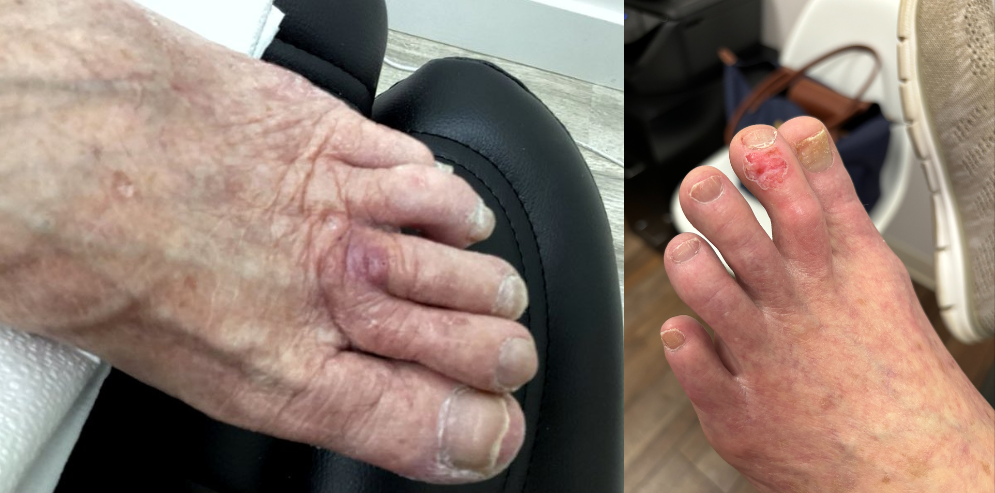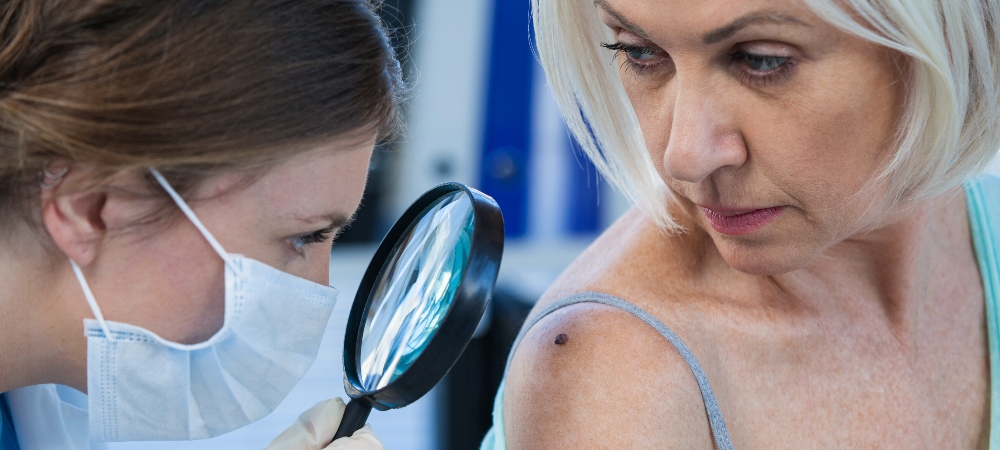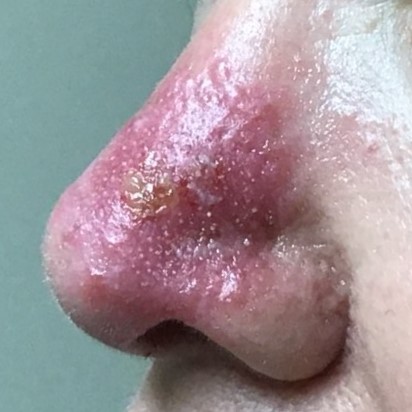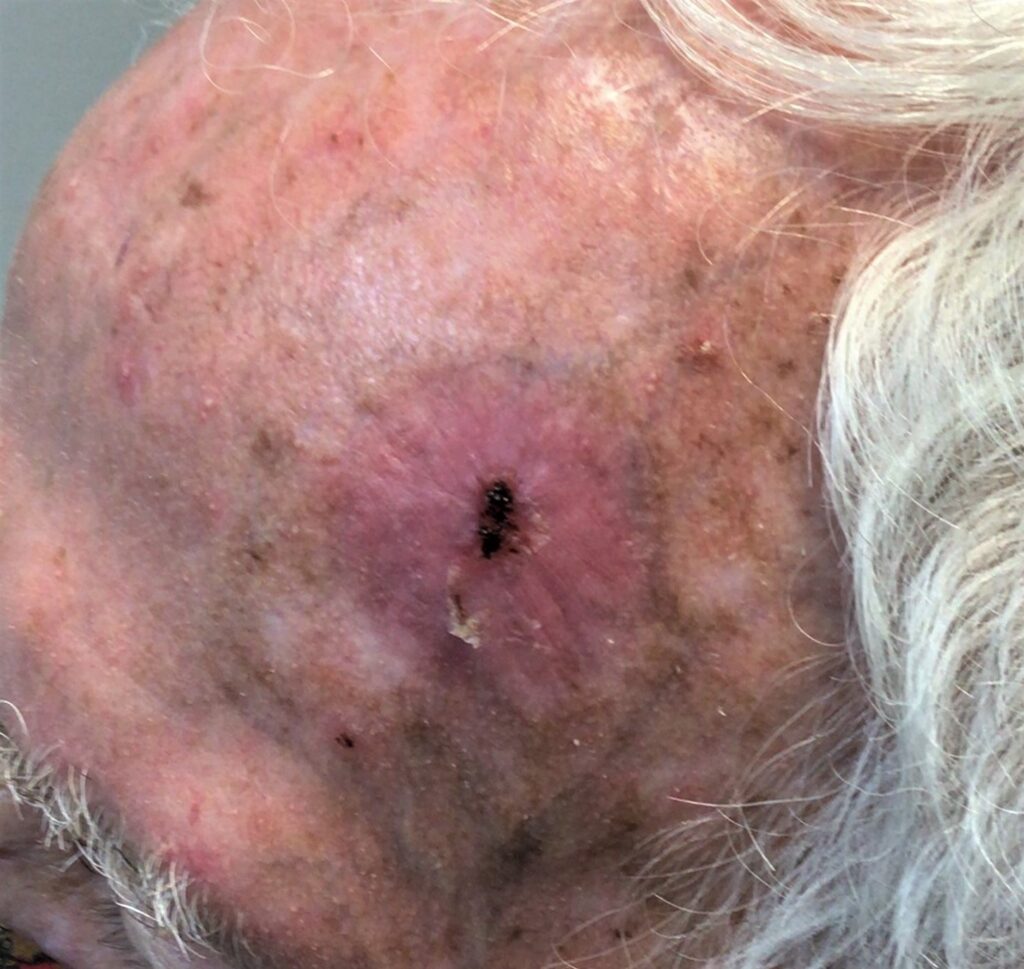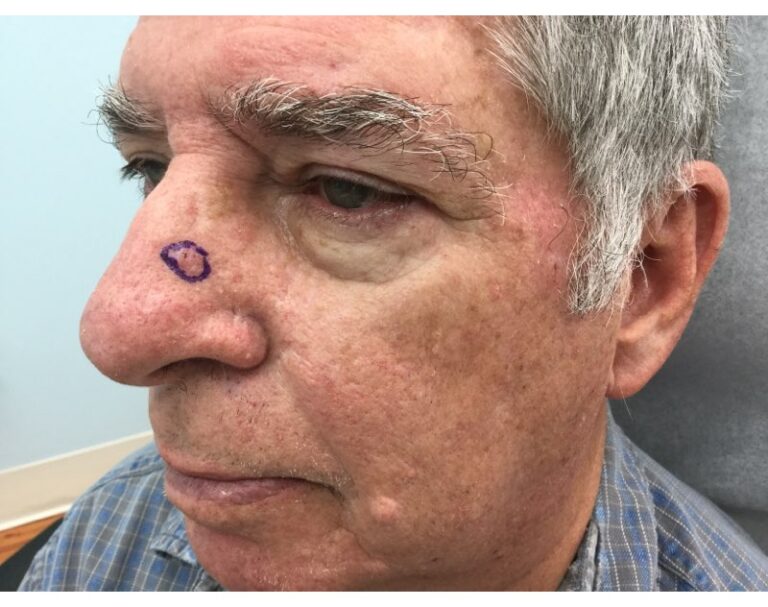
Squamous cell skin cancer is generally not life-threatening, but you should always follow the recommendations of your doctor or dermatologist—and pursue treatment as soon as possible. Squamous cell skin cancers that have reached a more advanced stage can become more difficult to treat and may pose the risk of spreading.
There are several options for how to treat squamous cell skin cancer, including Mohs surgery and Image-Guided SRT. Your dermatologist will advise you as to the best path; the methods available to each patient may vary depending on the location, size, and depth of the squamous cell skin cancer, as well as the patient’s age and overall health condition.
GentleCure believes you should feel empowered and well-informed when making a treatment decision. In the guide below, we provide more details on available options so you can feel confident in your choice.
Excisional Surgery
Excisional surgery is frequently recommended for small squamous cell skin cancers that were found very early and have not spread. A scalpel is used to remove the entire skin cancer, plus a “safety margin” of the healthy tissue surrounding the area. You’ll be sent home after the surgery, and the skin cancer that was removed is sent to a lab for testing. If any cancer cells are found within the safety margin of healthy tissue that was excised, you may be asked to return for a follow-up surgery until the safety margin test results are cancer-free.
Mohs Surgery
Mohs surgery is another commonly recommended method for how to treat squamous cell skin cancer. Skin cancers that are recurring or that exist on visible areas like the nose or lips are often recommended to be treated with Mohs surgery. During the procedure, your doctor will numb the affected area and then remove the skin cancer and a small safety margin of healthy tissue with a scalpel, layer by layer. After removing each layer, it is tested for cancer cells. The doctor will continue to remove layers until no more cancer cells are detected.
Cryosurgery
When squamous cell skin cancer is found very early and has yet to penetrate beyond the first layers of skin, cryosurgery may be a good option for patients who might not do well with scalpel surgery, due to a blood disorder or difficulty with anesthesia. When performing cryosurgery, the doctor will either use a cotton-tipped applicator or a spray tool to apply liquid nitrogen to the skin cancer. This freezes and destroys the skin cancer area, which will later fall off and allow for new, healthy skin to grow.
Image-Guided SRT
Image-Guided SRT is another surgery-free option for patients who need or want to avoid traditional surgery methods. After targeting the cancer cells with ultrasound imaging, the doctor will deliver a calibrated dose of x-ray energy directly below the surface of the skin, thereby penetrating and destroying the cancer cells.
Is there a difference between SRT and Image-Guided? SRT may also be performed without prior ultrasound imaging, but ultrasound imaging allows for more effective targeting and generally carries no downside. If you would like to know more about Image-Guided SRT, you can read how it works and what to expect during treatment on our website.
Our Image-Guided SRT locator can help you determine if and where the treatment is available in your area.
Topical Therapy
Like cryosurgery, topical therapy is typically reserved for superficial squamous cell skin cancers. Like cryosurgery, topical therapy is typically reserved for superficial squamous cell skin cancers. The patient would be prescribed a cream or gel to apply to the skin cancer area for a set amount of days, according to directions from their doctor. The topical medication targets and destroys the cancerous cells.
Contact GentleCure With Additional Questions
Patients now have more options than ever for how to treat squamous cell skin cancer, allowing each individual to make a choice they feel comfortable with. If you have questions about IG-SRT as a treatment option, you should speak with your doctor or a board-certified dermatologist.
Of course, you are also welcome to call us at 855-936-4411 and speak with a skin cancer information specialist before or after your doctor’s appointment. Our goal is to help you make a better-informed treatment decision, whatever that decision may be.
